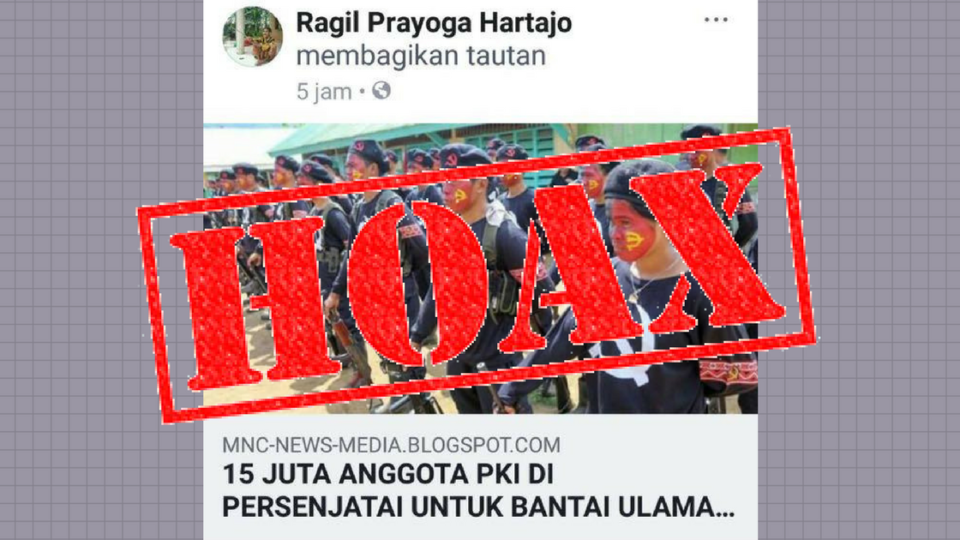While Indonesia is often criticized for its draconian online censorship laws, the country also has a big problem with fake news and hoaxes being spread online (like much of the world). Lately, the government have stepped up their attempts to crack down on fake news by going after not only the people who create the hoaxes but even the people who simply share them.
Yesterday morning, officers from the National Police Directorate of Cyber Crimes arrested a 48-year-old high school teacher in Banten, West Java, named Yayi Haidar Aqua. Police say that Yayi, using a Facebook account with the name Ragil Prayoga Hartajo spread a fake news story titled, “15 million members of the PKI (the long-defunct Indonesian Communist Party) armed to slaughter ulema (Muslim scholars)”.
“[Yayi] was arrested in relation to his posting on his Facebook account which contained racial and ethnic discrimination and / or hate speech and hostility towards certain individuals and / or community groups based on SARA (an acronym used to describe attacks based on race, religion or ethnicity),” Police Brigadier General Fadil Imran, director of the cyber crime unit, in a written statement released today and picked up by CNN Indonesia.
According to Fadil, the suspect has been charged with the 2008 Law on the Elimination of Racial and Ethnic Discrimination as well as Article 28 of the Law on Electronic Transactions and Information (UU ITE) and faces up to five years in prison for sharing the hoax.
The cyber crime czar’s statement also included a message to the public asking citizens to learn from this case and be careful while using social media, advising them to “Think before click.”
In recent weeks and months, the cyber crime directorate have also gone after other people for sharing hoaxes, including a 23-year-old who was arrested for sharing fake news about a homeless man who was beaten up for being a suspected communist, as well as a 37-year-old housewife who shared a hoax about President Joko Widodo’s political party, PDI-P, including an edited photo of a billboard saying PDI-P didn’t care about Muslims.
Although the hoaxes in question might indeed be dangerous, many rights activist still say the government is going too far in arresting people for simply sharing fake news online. But it is clear that Jokowi’s administration sees arresting sharers as an important deterrent to the spread of hoaxes. The revised criminal code currently under discussion in the House of Representatives also includes a law that would potentially make sharing a fake news item a crime that could be punished by up to six years in prison, which critics say would be a huge threat to free speech.




